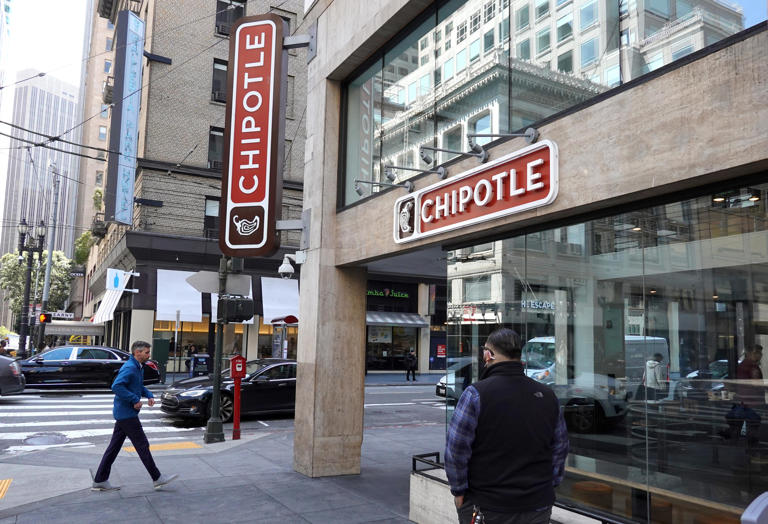California’s recent enactment of a $20 minimum wage for fast food workers has ignited significant adjustments within the restaurant industry, with Chipotle, a prominent player in the fast-casual dining sector, providing valuable insights into the practical implications of the new law. During its recent earnings call, Chipotle disclosed that the legislation had resulted in a substantial wage increase of approximately 20% for its restaurant staff across the Golden State.
In response to the heightened labor costs, Chipotle found it necessary to recalibrate its pricing strategy, leading to a modest uptick in menu prices for customers in California. CEO Brian Niccol underscored the company’s commitment to maintaining accessibility and affordability for its offerings, even amidst the challenging economic landscape shaped by the wage hike. By absorbing a portion of the increased costs internally and passing on the rest to consumers through moderate price adjustments, Chipotle aims to strike a delicate balance between safeguarding its profitability and preserving its value proposition for customers.
Chief Financial Officer Jack Hartung elaborated on the intricate calculus that Chipotle must navigate in response to the wage increase. With a significant presence in California, where it operates 475 restaurants, the company faces unique challenges and opportunities arising from the state’s progressive labor policies. While the wage hike presents operational hurdles, Chipotle remains steadfast in its commitment to being a responsible employer while also striving to maintain its market competitiveness.
Despite the necessity of adjusting prices to offset the impact of the wage increase, Chipotle remains mindful of the importance of offering competitive pricing to its loyal customer base. Hartung emphasized that, even with the modest menu price increases, Chipotle’s offerings continue to represent a compelling value proposition for consumers. He noted that the company is passing on less of the cost to consumers than some of its competitors, underscoring its commitment to maintaining affordability and accessibility.
Moreover, Chipotle’s approach reflects its resilience and adaptability in navigating complex economic dynamics. By carefully managing the impact of the wage increase on both its workforce and its customers, Chipotle aims to uphold its brand integrity and sustain its growth trajectory in an ever-changing industry landscape. The company’s commitment to striking a balance between profitability and affordability underscores its customer-centric ethos and its dedication to fostering long-term relationships with its patrons.
Amidst the evolving regulatory landscape and shifting consumer preferences, Chipotle’s proactive response to the wage increase highlights its strategic agility and commitment to corporate responsibility. By embracing transparency and engaging with stakeholders, Chipotle seeks to foster trust and goodwill, positioning itself as a socially conscious brand that prioritizes the well-being of its employees while also delivering value to its customers.
In conclusion, Chipotle’s experience with California’s $20 minimum wage for fast food workers offers valuable lessons for the broader restaurant industry. As businesses navigate the challenges posed by regulatory changes and economic pressures, proactive adaptation and a customer-centric approach are essential for ensuring long-term sustainability and success. Through strategic pricing adjustments and a commitment to maintaining affordability, Chipotle demonstrates its resilience and dedication to serving both its employees and its customers in an evolving business landscape.
